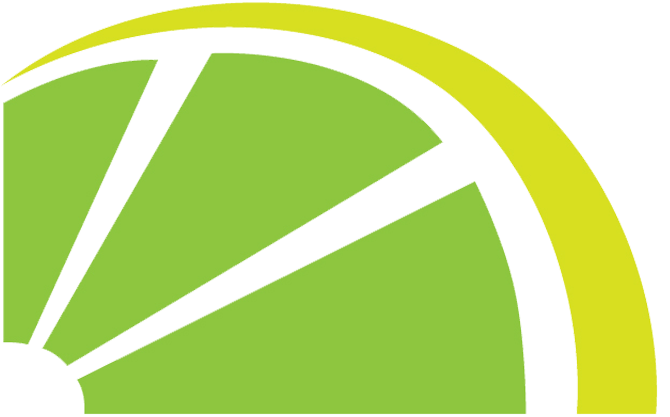How to Use Hashtags
What is a # Hashtag?
A hashtag is a word or phrase without spaces with a hash mark (#) in front of it. It is used to identify a keyword or topic of interest in a social media post.
For example, ‘#HowToUseHashtags’ is a hashtag!
When used properly, hashtags make it easier for users to find related content. Including them in your social media posts will help increase the visibility of your messages.
What’s the Difference Between ‘#’ and ‘@’?
Now you know what a hashtag is, it’s important that you know how to use it. So, let’s start by clearing up some simple symbol confusion.
When you’re starting out on social media, ‘# – hashtag’ and ‘@ – at’ are easily confused but they have different functions and it’s important to be aware of these if you want to make the most of your social media posts.
The good news is that these functions are the same across most social media platforms and so you’ll only have two rules to remember
-
- If a word has the symbol ‘#’ in front of it, it’s a hashtag.
- If a word has the symbol ‘@’ in front of it, it’s a specific social media account.
So, if we were to write the following message,
“Did you know that @LimeGreenMarketing can help businesses with their #SocialMedia?”
‘@LimeGreenMarketing’ directly mentions the business’ social media account and ‘#SocialMedia’ is the keyword or topic of interest, or hashtag.
Using Hashtags on Different Social Media Platforms
While the function of a hashtag is essentially the same on each social media platform, it is worth noting that there are subtle differences in the most effective ways to use them. We’ve put together some pointers for the three most popular social media channels below.
Given that Twitter is where the it all began, it’s no surprise that this social media platform has enabled the humble hashtag to be more versatile than most.
Like other social media channels, hashtags are used on Twitter to find relevant content and conversations to get involved in. By having a public profile, your tweets that include hashtags will appear in search results for that term. This means users who aren’t already following you can find your account through a common interest or topic via the hashtag.
But how many hashtags should you include? In general tweets with one hashtag receive the most engagement whereas using three or more on this platform have been proven to lower engagement.
If you’re unsure which hashtags you should be using, take a look at the “Trends” sidebar of your Twitter feed. This creates a list of hashtags you might be interested in based on your tweets.
You can filter the results when you search for a hashtag on Twitter. The “Top” option displays the most relevant and popular posts, including those from users you don’t follow, “All” shows you every tweet that uses the specific hashtag in real time, and “People you follow” will only display results from users you are following. Good to know!
Instagram is a visual social media platform. Using hashtags on Instagram allows photos with the same hashtag to be collated into one stream. This makes discovering content and finding new users with similar interests easy to follow.
While Instagram limits users to 30 hashtags per post (which seems like plenty!), there is no universally agreed correct number of hashtags to use on this platform. Our advice? Keep your hashtags relevant and don’t forget to include some plain text with your photo too.
If you want to include a hashtag in your Instagram post, type the ‘#’ symbol and Instagram will give you suggestions based on popularity.
Rather than asking how to use hashtags on Facebook, it’s worth asking if you should be using them at all. As the last of the three major social media platforms to follow suit with the hashtag feature, Facebook’s functionality is a little more limited. While clicking on Facebook hashtags will take you to a list of posts containing the same hashtag, the results are not limited to people you know.
It is now possible to filter hashtag search results on this platform. However, data has shown that using hashtags on Facebook posts does not help boost engagement like it does on other social media platforms.
If you’re determined to use hashtags on this platform, we recommend you do so sparingly – one per post will be just fine.
Creating Your Own Hashtags
As well as tapping into hashtag trends, it’s easy to create your own. While you could conduct your own hashtag research to get you started, we simply suggest following these simple rules:
-
- Try to keep your hashtags to no more than three words. This makes them easier to remember and more likely for others to remember.
-
- Use a capitol letter for the start of each word in your hashtag sentence. While hashtags are not case sensitive, it will make them easier to read and will avoid any embarrassment. Do you remember #susanalbumparty, or rather #SusanAlbumParty? Did you see it? Exactly, take our advice!
-
- Alliteration often works well in hashtags e.g. #ThrowbackThursday or #FridayFeeling.
-
- Hashtags can be brand specific or campaign specific. Brand specific hashtags can be included in any post. Campaign specific hashtags will be used for one off promotions.
5 Hashtag Facts
Now that you know how to handle your hashtags, we thought we’d include some facts and figures for you to impress your friends with.
- It’s thought that the symbol we know today as a hashtag has evolved from the 14th century abbreviation for pound weight – libra pondo or lb. A horizontal slash was added to denote the letters were connected and over time messy writing resulted in the hashtag.
- Hashtags were born on Twitter.
- In 2007 former Google employee, Chris Messina was the first person who tweeted using a hashtag.
- The word “hashtag” was added to the Oxford dictionary in 2010 and the Scrabble dictionary in 2014.
- Almost 75% of people on social media use hashtags – whether they are all using them correctly is a different story altogether!
If you’re still unsure about how to make the most of hashtags on social media get in touch with our team. We offer social media support and training tailored to you and your needs. Call us on 01600 891525 or email info@limegreenmarketing.co.uk.

